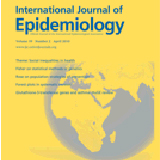
Background: In high-income countries, it is standard practice to give antibiotics to women with pre-term, pre-labour rupture of membranes (pPROM) to delay birth and reduce the risk of infection. In low and middle-income settings, where some 2 million neonatal deaths occur annually due to complications of pre-term birth or infection, many women do not receive antibiotic therapy for pPROM.
Objectives: To review the evidence for and estimate the effect on neonatal mortality due to pre-term birth complications or infection, of administration of antibiotics to women with pPROM, in low and middle-income countries.
Methods: We performed a systematic review to update a Cochrane review. Standardized abstraction forms were used. The quality of the evidence provided by individual studies and overall was assessed using an adapted GRADE approach.
Results: Eighteen RCTs met our inclusion criteria. Most were from high-income countries and provide strong evidence that antibiotics for pPROM reduce the risk of respiratory distress syndrome [risk ratio (RR) = 0.88; confidence interval (CI) 0.80, 0.97], and early onset postnatal infection (RR = 0.61; CI 0.48, 0.77). The data are consistent with a reduction in neonatal mortality (RR = 0.90; CI 0.72, 1.12).
Conclusion: Antibiotics for pPROM reduce complications due to pre-term delivery and post-natal infection in high-income settings. There is moderate quality evidence that, in low-income settings, where access to other interventions (antenatal steroids, surfactant therapy, ventilation, antibiotic therapy) may be low, antibiotics for pPROM could prevent 4% of neonatal deaths due to complications of prematurity and 8% of those due to infection.